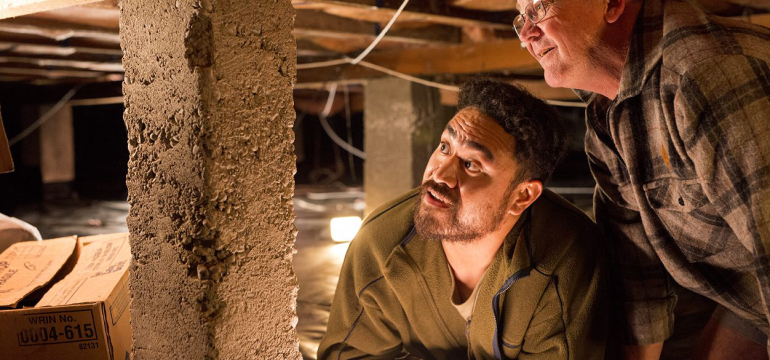Staycation checklist for improving your home’s strength and safety
Planning a staycation these holidays? Now that the frenzy of Christmas is over, think about using some of your active relaxing time to build some knowledge and DIY your way to a more resilient home.
Providing natural disaster insurance for residential properties and investing into research helps the Earthquake Commission work towards reducing the risk many face and sets communities up to get their lives back on track.
But there’s lot that comes down to us as individuals.
Public Education Manager, Hamish Armstrong explains it’s important to remember that although we can't predict disasters, we can prepare for them.
“No matter where we live in Aotearoa, whether you rent or own, live in a house or an apartment, there is a lot you can do to be better prepared and to make your home stronger and to keep your whānau safer for hazard events like earthquakes.”
“This can range from simple things like checking you have enough insurance or knowing how to turn off your gas and water, to securing heavy objects in your home, to bigger jobs like booking in a builder to take down an old chimney or secure your foundations,” Armstrong says.
EQC’s staycation preparedness checklist:
- Know how to turn off gas, water and electricity in an emergency (mains gas should only be turned off in an emergency).
- Review your home insurance policy
- Secure tall and heavy furniture and appliances around the home (bookcases, cabinets, drawers, TVs, whiteware). Ensure your hot water cylinder is properly secured (items to do this can be bought at a hardware store).
- Secure valuables/breakables with Quake Wax or non-slip mats. Add latches to cupboards and drawers to help keep items in place during earthquake shaking.
- Use proper hooks (no single nails) to hang pictures and mirrors throughout the home. Remove any items that could fall on people’s heads while sleeping.
- Check your chimney for any immediate issues (leaning, cracking, twisting, loose masonry and plaster) that could mean your chimney is more likely to suffer damage. If your chimney is old, or you see any problems, make a plan to get in touch with a builder.
- Check foundations for any obvious issues (rot, borer, undermining, lack of fastenings or adequate bracing). If something isn’t right, call a builder or engineer.
- Clear out gutters and pipes to help stop water backing up if there’s any heavy summer rain
“Having adequate insurance is super important and also an easy one to start with,” Armstrong says “While you’re off work, why not take some time to review your home insurance policy and check for any obvious exclusions? You can use an online calculator to make sure you have enough cover to rebuild your home if it suffers significant damage, and to compare the cost of your home or contents insurance policy with other providers – that way you’re getting the best deal.”
Armstrong says EQC has lots of information available to help New Zealanders make sure their place is well prepared for the tests of a natural disaster.
“We know is that preparing today will help protect your home and your loved ones. Our Quake Safe Your Home guide also shows you how to prepare your home and protect your whānau.
“Much of this work can be completed by those with basic DIY skills, while other steps are best left to the pros. If you’re unsure about what work might be restricted, check in with your local council or a licensed building practitioner when you can. If you are going to tackle some of the work yourself, be sure to stay safe,” Armstrong says
You can find out more at www.eqc.govt.nz/be-prepared/
EQC also has a range of quick tip videos on our YouTube. Check them out here.(external link)
